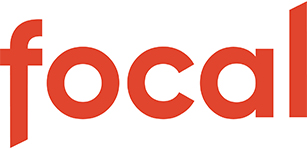Towards an authentic documentary film practice on the Internet!
The film directors and researchers Eyal Sivan and Florian Schneider confront the web documentary with the traditional film in the form of a manifesto. Between practice and theoretical research.
On the one hand, the usual productions intended for the fixed slots in the programme schedules; on the other, films placed on the web, where they can be viewed according to each individual's availability. On the one hand, linear narrative forms; on the other, fragmentary stories.
Turning the viewer into an authentic "editor" who re-organizes the flow of material on offer and brings the archives to life by re-appropriating them, radically changing the notions of author and image ownership… in short, turning the web documentary into a genuine production location and not merely a place for dissemination and consumption!
Some food for thought and debate:
How can the Internet really bring about a renewal of documentary practice? In the form of a manifesto, the filmmakers and university researchers Eyal Sivan and Florian Schneider propose to compare their theoretical vision with the players of the web documentary: to no longer simply adapt existing television-based forms of documentary in the shape of a definitive programme aimed at as large an audience as possible, but to really take possession of the Internet's (open) resources: to increase the number of objects and versions, to adopt the open form, to leave room for the unforeseeable, to turn the viewer into an authentic "editor" who re-organizes the flow of material on offer and brings the archives to life by re-appropriating them… even if it means radically changing the notions of image ownership and authorship.
Turning the web documentary into a genuine production location and not merely a place for consumption!
The web documentary is currently merely an adaptation, a transposition of the television-based documentary, without it having been really re-invented and re-thought.
Yet the medium is totally different.
While TV produces a programme to capture as large an audience as possible at the same time, the logic of the Internet is quite the opposite: although it is very difficult to bring together a mass of web surfers at a given time, for technological and economic reasons — due to a lack of adequate bandwidth -, this aim even seems contrary to the nature of the Internet (absence of fixed time slots, targeted, atomized audiences, etc.). Thus the Internet tends to increase the number of programmes so as to increase the audiences and the viewing times, but it escapes all the formating involved in television (slot, timetable, genre, appointment, etc.).
With the Internet, there is also a re-definition of the sharing between viewer and author, the very notion of viewer is called into question. Not as an ordinary active (or falsely active) character, as the web documentary suggests today, but as a possible "editor", in the sense that he/she can re-organize the material, where the role of author and viewer are really reversed.
The space offered by the Internet is far removed from the logic of television and closer to that of the plastic arts, of installations, which can leave room for the unforeseeable (so dear to the documentary), increase the number of variations and versions, keep the rushs: remember the lessons of the CD rom, and call into question one's own system!
And in conclusion the following points:
- A production space, not a consumption space = editors' cinema
- A third space between Youtube, which does not take an interest in these users, except for the metadata needed to sell advertising, and television space, which turns viewers into ordinary users, image consumers
- dynamic archives = constantly redefined
- reality = the Internet itself?
Barbara Levendangeur
March 2010
Eyal Sivan ("The Specialist" 1999, "Route 181: Fragments of a Journey in Palestine-Israel" 2004),
Florian Schneider (co-founder of the campaign "kein mensch ist illegal", Dokumentar 1997, and author of Soirée Thema "was tun ?/que faire ?" for ARTE, 2002),
Colette Loumède (ONF),
Catherine Kammermann (TSR).
Presentation
Barbara Levendangeur and Jean Perret (Visions du Réel).




